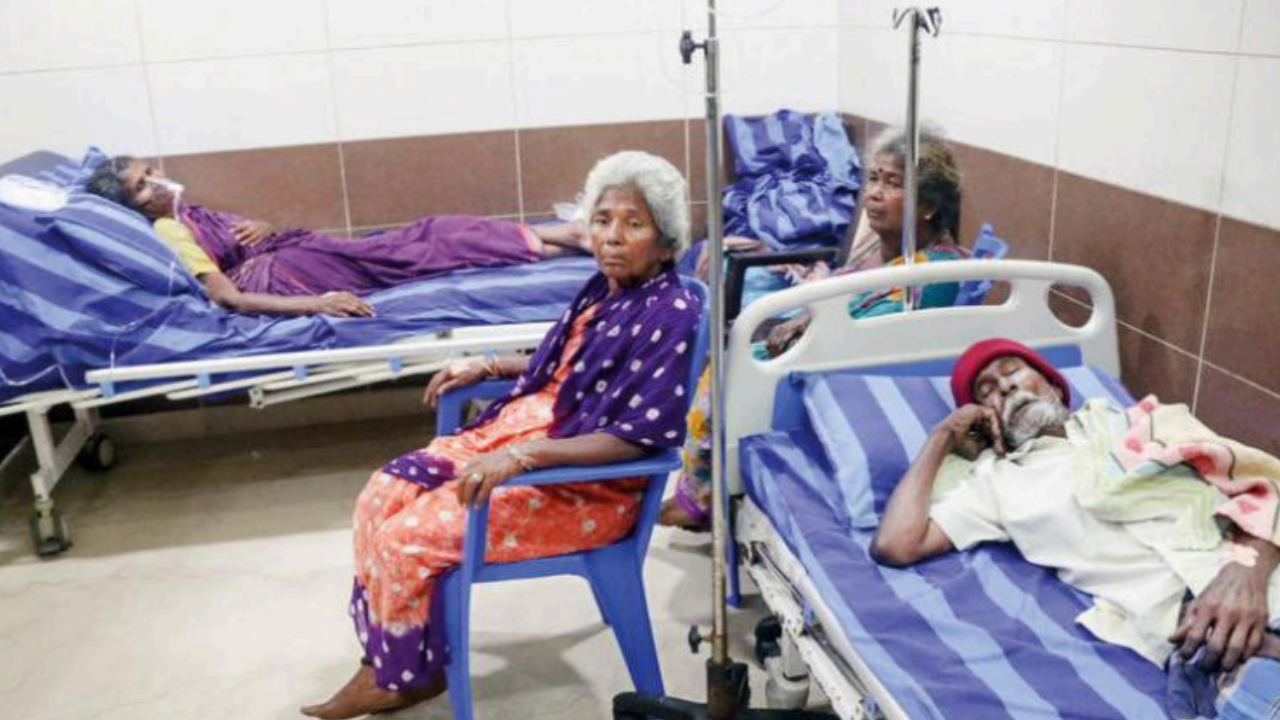CHENNAI: Still battling an oil slick caused by cyclone Michang, the city’s red-industry hub, Ennore, suffered another mini-calamity when an ammonia leak from a fertilizer factory caused suffocation, vomiting and cough among residents late on Tuesday.
The leak from a 2.5km-long pipeline bringing ammonia to Coromandel International Ltd, which produces Ammonium Phosphate Potash Sulphate (APPS), at 11.45pm on Tuesday triggered panic among residents in Ennore’s Periyakuppam and Chinnakuppam, which are about 500m from the factory. People fled their houses and many had to be hospitalised.
Till Wednesday evening, 46 people with ammonia poisoning were admitted to Aakash Hospital in Periyar Nagar. Three of them are in the hospital’s intensive care unit, while six others have been admitted to the government Stanley hospital.
While residents of the area protested demanding permanent closure of the factory, citing health and environmental hazards, the Tamil Nadu Pollution Control Board (TNPCB) ordered the closure of the unit for a week. The TNPCB asked the factory to identify the exact location and extent of pipeline damage within a day and rectify the rupture before resuming ammonia transfer.
The TNPCB found that ammonia levels in the air were at 3 ppm (2,090 microgram/m3 against 400 microgram/m3 on 24-hour average) at 3.30am on Wednesday. The ammonia level in seawater was 49 mg/L, against the CPCB standard of 5 mg/L for marine discharge, when the TNPCB made an inspection at 3.49am.
The leak from a 2.5km-long pipeline bringing ammonia to Coromandel International Ltd, which produces Ammonium Phosphate Potash Sulphate (APPS), at 11.45pm on Tuesday triggered panic among residents in Ennore’s Periyakuppam and Chinnakuppam, which are about 500m from the factory. People fled their houses and many had to be hospitalised.
Till Wednesday evening, 46 people with ammonia poisoning were admitted to Aakash Hospital in Periyar Nagar. Three of them are in the hospital’s intensive care unit, while six others have been admitted to the government Stanley hospital.
While residents of the area protested demanding permanent closure of the factory, citing health and environmental hazards, the Tamil Nadu Pollution Control Board (TNPCB) ordered the closure of the unit for a week. The TNPCB asked the factory to identify the exact location and extent of pipeline damage within a day and rectify the rupture before resuming ammonia transfer.
The TNPCB found that ammonia levels in the air were at 3 ppm (2,090 microgram/m3 against 400 microgram/m3 on 24-hour average) at 3.30am on Wednesday. The ammonia level in seawater was 49 mg/L, against the CPCB standard of 5 mg/L for marine discharge, when the TNPCB made an inspection at 3.49am.
